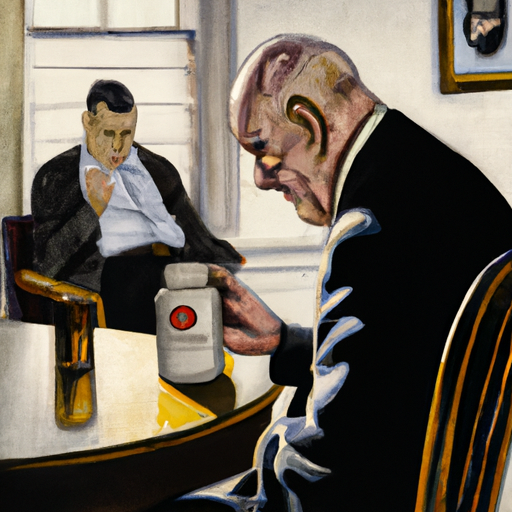A Comprehensive Review of the Opioid Crisis in Canada: A London Team’s Initiative
Within the realms of health and welfare, escalating social concerns continue to spotlight the opioid epidemic engulfing Canada, pervasively impacting local communities across the country, especially in Ontario. At the forefront of this devastating crisis, a London-based team has taken up the baton to tackle opioid over-prescription amongst seniors.
The Opioid Crisis: Impacts and Implications
The opioid crisis shaping the Canadian landscape has far-reaching implications affecting not just the individual users but entire communities and sectors. This escalation in opioid usage and associated problems contributes to:
- Increase in overdose-related deaths
- Surge in crimes related to drug abuse
- Growth in the number of homeless as individuals lose their homes and jobs due to addiction
The most gripping aspect of this crisis is its indiscriminate nature – neither socio-economic status nor age offers immunity. Recent data and studies underscore a growing concern about the over-prescription of opioids for seniors. This demographic is often prescribed long-term opioid treatments for chronic pain, escalating the risk of potential misuse, addiction, and associated health implications.
A London Team Leads the Charge against Opioid Over-Prescription
In response to this escalating issue, a team from the Southwestern Ontario region has taken decisive and pivotal steps. They are spearheading an innovative strategy to reduce the number of opioids prescribed to seniors – a demographic increasingly affected by the opioid crisis. With their new pilot program, they offer a compelling model that, if successful, may be replicated elsewhere to alleviate the Canadian opioid crisis.
The New Initiative: Working Strategy and Proposed Solutions
The team’s strategy emphasizes the importance of open conversations between physicians and patients about the potential risks and side effects associated with opioids. To facilitate this, they have developed a shared decision-making tool that highlights alternatives to opioid medications for treating chronic pain. Through frank and open dialogues, the team hopes to investigate and address individual patient needs better, targeting effective pain management over one-size-fits-all opioid prescriptions.
Combatting the Opioid Crisis: Broader Initiatives
Apart from the London team’s initiative, there is a remarkable nationwide push to address the implications of the opioid epidemic. This includes:
- Implementation of opioid class action on a national level to address the widespread issue and its social implications.
- Significant efforts towards promoting widespread naloxone education and access. Available as a nasal spray, naloxone can reverse the effects of an opioid overdose, potentially saving lives.
- Plans for the disenfranchised and homeless, to provide necessary support and resources to those heavily impacted by the crisis.
While there is no single solution to the opioid crisis, these collective efforts signify a distinct shift towards proactive combat strategies rather than mere mitigation and management of the problem.
Conclusion: Taking Note of Key Takeaways and Next Steps
The opioid crisis in Canada calls for immediate and robust action. Initiatives such as the London team’s aim to reduce opioid prescription for seniors offer the potential to stem the tide of this epidemic impacting Canadian communities. At the same time, wider actions such as promoting naloxone access, supporting the homeless, and the Canadian opioid abatement class action contribute to a necessary multi-faceted approach.
The breakthrough of this epidemic calls for a united stand by community leaders, healthcare professionals, and citizens alike. We must remain vigilant and committed to monitoring new initiatives like the one led by the London team, simultaneously adapting our strategies in response to the changing scope and toll of the opioid crisis. Together, we can work towards the vision of a safer, healthier Canada.
